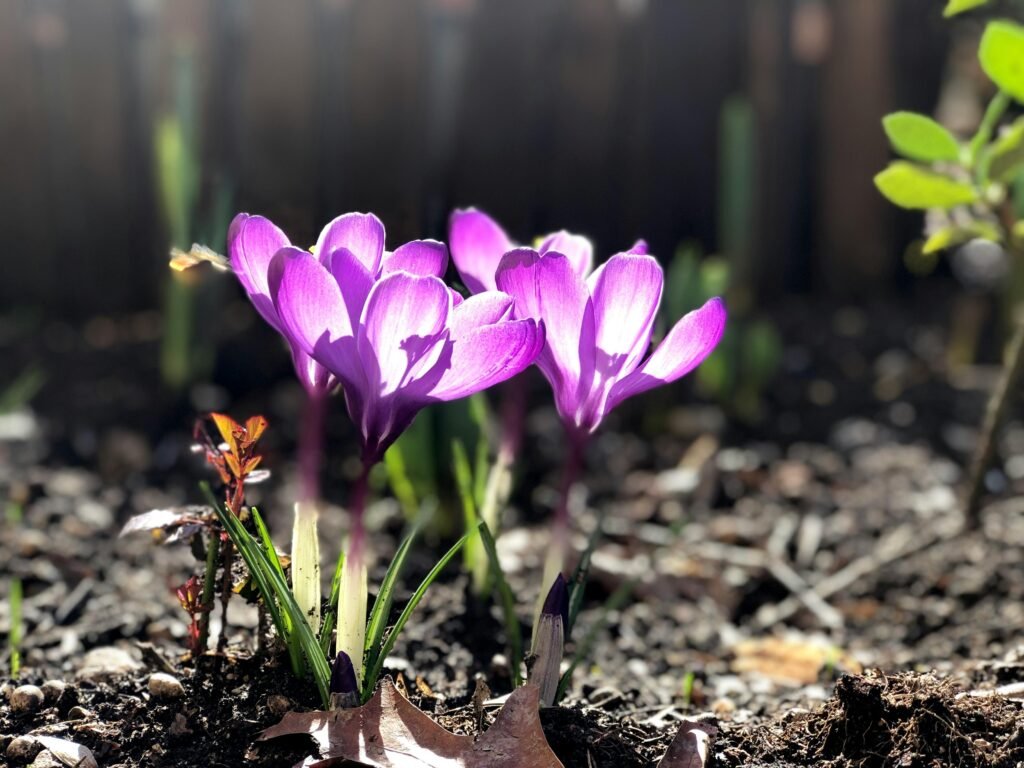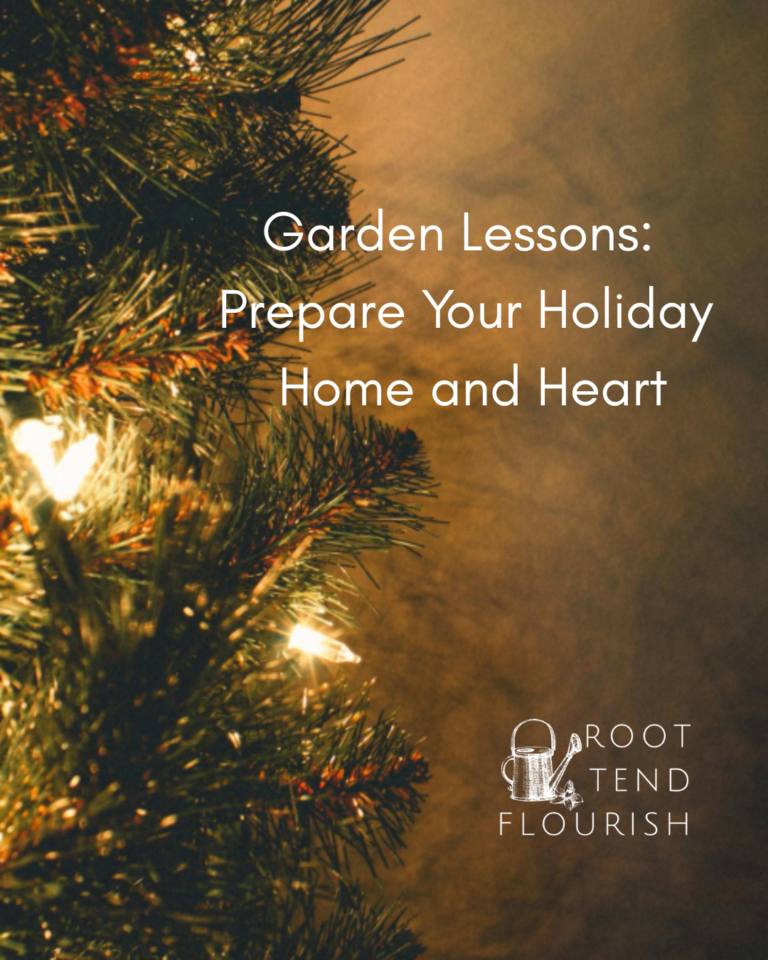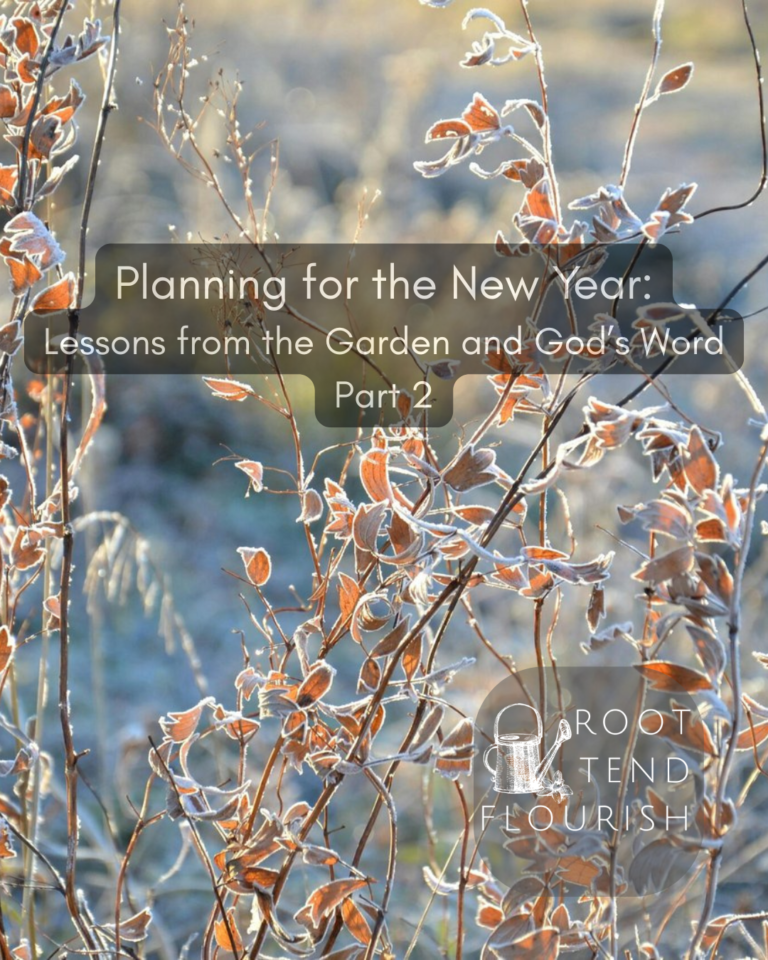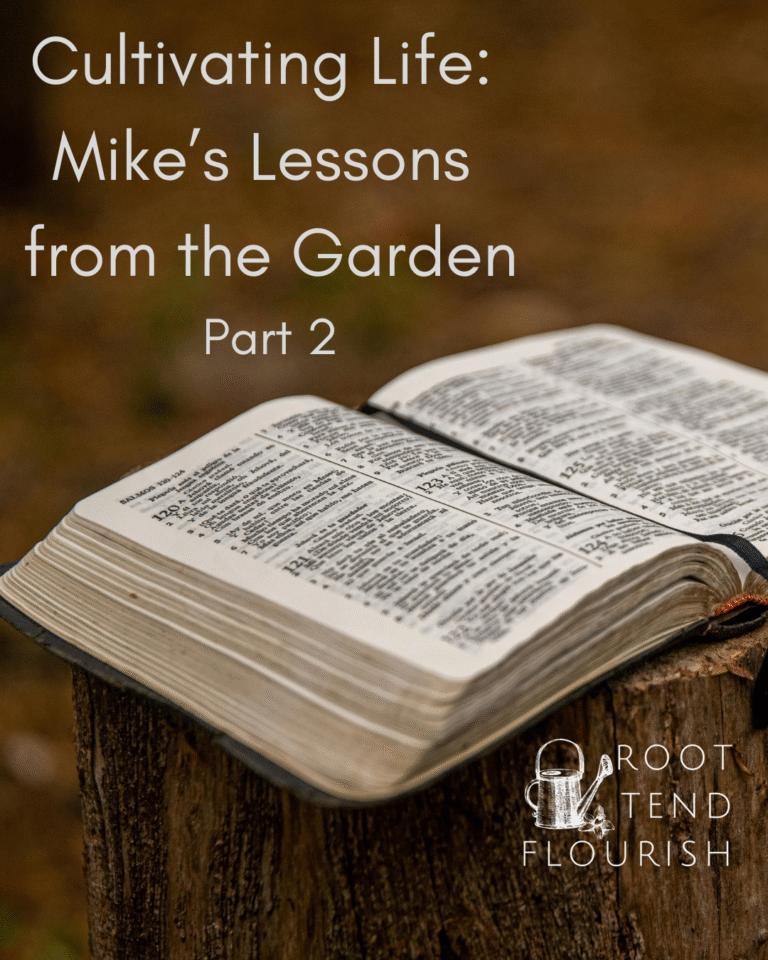Cultivating Life: Mike’s Lessons from the Garden

(Mike Writing) I love writing and creating but there are times where I also enjoy standing back and looking over what has been created. Gardening is more than just planting seeds and watching them grow (I mean, it is totally that but also more). It’s a process of cultivating, care, and transformation. This mirrors the biblical call to nurture our faith and spiritual lives. From tending to the soil of our hearts to pruning away distractions that hinder growth (look at that wordplay, top notch!), the bible is filled with lessons on cultivation that reflect the rhythms of the garden. Just as a gardener or amateur green thumber like me, we patiently water, prune, and harvest. As believers, we are called to nurture our faith with intention and perseverance. In this post, we’ll explore how gardening serves as a powerful metaphor for spiritual growth, drawing connections between biblical teachings and the beauty of cultivating life. This is going to be so fun!
Gardening Principles and Our Faith
The biblical call to cultivate life begins with God’s original command in Genesis 2:15, where He instructs Adam to “work and keep” the Garden of Eden. I mean, where else would I start? This command reflects humanity’s responsibility to care for creation, nurture growth, and foster abundance in both the physical and spiritual realms. Cultivation is not merely about planting and harvesting—it is about stewardship, diligence, and intentional effort. Just as a gardener must tend to the soil, water the plants, and protect the harvest, believers are called to invest in their faith, relationships, and communities with care and perseverance.

This post may contain affiliate links. Please read our disclosure policy.
Cultivation can be linked to spiritual development, particularly in the teachings of Jesus (if you haven’t guessed yet, I am probably going to jump around the Bible instead of going chronologically to make my points). In the Parable of the Sower (Matthew 13), Jesus describes different types of soil that represent the conditions of people’s hearts; some are fertile and receptive, while others are rocky, thorn-filled, or hardened. The call to cultivate life is a call to prepare our hearts to receive truth, remove obstacles that hinder growth, and nourish our faith through prayer, scripture, and fellowship. Like a gardener who removes weeds and nurtures tender plants, believers must actively shape their spiritual landscape to produce a flourishing life rooted in God’s word. As green thumbers, we really understand what it means to tend and grow our plants.
When I think of cultivating soil or our faith, the circular process I see in my mind’s eye involves transformation, pruning, and refinement. In John 15, Jesus speaks of God as the divine gardener who prunes branches to encourage greater fruitfulness. This process may involve trials, challenges, or moments of letting go, but ultimately, it leads to a deeper, more abundant life. The biblical call to cultivate life challenges believers to embrace growth, persevere in faith, and actively participate in the work of restoration. Whether in a garden or in the heart, cultivation requires patience, dedication, and trust that the harvest will come in due season.
Cultivating Through Sowing Seeds
While I am not someone who sews fabric (I have a great many skills but that is not one of them) the type of sowing we are talking about is preparing the way for the growth to happen. Sowing seeds of faith begins with preparation and just as a gardener carefully chooses the right soil, believers must cultivate a heart that is receptive to God’s truth. In the Parable of the Sower (Matthew 13), (look, we are back at this parable again!) Jesus describes how different types of ground affect the growth of seeds, illustrating how spiritual readiness shapes the depth of faith. A hardened heart, like rocky soil, resists growth, while a distracted spirit, like thorn-infested ground, struggles to thrive. But when we prepare our hearts with prayer, humility, and intentional time in the Word, we create an environment where faith can take root and flourish.
Once the seeds are planted, they require care. A gardener must water consistently, protect young sprouts from pests (grrr slugs), and remove weeds that threaten the growth of the new plants. Similarly, faith requires continuous investment, studying Scripture, spending time in fellowship, and seeking God through prayer. Without these spiritual nutrients, faith can wither under the pressures of daily life. Just as a neglected garden falls into disorder, an untended faith can become stagnant. But when nurtured with care and persistence, it deepens, strengthens, and bears fruit. I love reading and there are a lot of prayer books out there. Check out one of these to help you grow deeper Every Moment Holy, Volume I: New Liturgies for Daily Life, Pray Big: Learn to Pray like an Apostle, A Praying Life: Connecting with God in a Distracting World and How to Pray: Reflections and Essays

Ultimately, sowing seeds of faith is a process that requires patience and trust. A gardener does not see immediate results but continues to tend the soil with the hope of a harvest. Likewise, spiritual growth takes time, and while there may be seasons of waiting, God promises that faith, when planted and cultivated, will yield abundance. Galatians 6:9 encourages believers to persist: “Let us not grow weary in doing good, for at the proper time we will reap a harvest if we do not give up.” Whether in a garden or in the soul, the act of sowing is an act of faith—an unwavering belief that, in time, growth and beauty will come.
Cultivating Life
So, whether you’ve got dirt under your nails or just a curious heart, I hope this post has planted something meaningful in you. The garden teaches us that growth is possible, even in rocky soil or tangled weeds, when we lean into God’s care and keep showing up with our watering cans of prayer and perseverance. Stick around, because in the next post, we’re going to dig even deeper (yes, pun always intended) into the spiritual rhythms of tending and harvesting. Until then, may your garden and your faith flourish.



